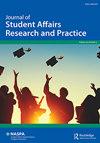塔利班返回阿富汗的影响及其对该国货币和财政政策的影响。
IF 0.8
Q3 EDUCATION & EDUCATIONAL RESEARCH
Journal of Student Affairs Research and Practice
Pub Date : 2023-05-31
DOI:10.47611/jsrhs.v12i2.4318
引用次数: 0
摘要
本文讨论了塔利班返回阿富汗的影响及其对该国货币和财政政策的影响。本文通过讨论阿富汗的历史概况,包括社会、文化和地理历史,提供了充分的背景信息和背景。因此,它也展示了导致塔利班接管该国的原因,涉及美国,9/11袭击以及美国军队于2021年从阿富汗返回。在此基础上,阐述了货币财政政策的内涵,列举了货币财政政策的作用、工具和作用。然后,由于缺乏官方数据和文献,比较了塔利班接管前后阿富汗的货币和财政政策,本文还建议首先估计塔利班接管前阿富汗中央银行的泰勒规则,然后预测中央银行对当前产出和通货膨胀的反应函数。将利率与当前利率进行比较,可以更清楚地看出塔利班过度货币政策的影响。最后,本文给出了一个宏观快照,作为阿富汗及其邻国通货膨胀的比较研究。本文章由计算机程序翻译,如有差异,请以英文原文为准。
The effects of the Taliban returning to Afghanistan and its effects on the monetary and fiscal policies of the country.
This paper speaks about the effects of the Taliban returning to Afghanistan and its effects on the monetary and fiscalpolicies of the country. This paper provides adequate background information and context by talking about thehistorical overview of Afghanistan which includes the social, cultural, and geographical history. Consequently, italso exhibits the reasons that caused the Taliban to take over the country with reference to the U.S.A, 9/11 attacksand finally the return of U.S.A troops from Afghanistan in 2021. This paper then explains the meaning of monetaryand fiscal policy while enumerating the roles and tools of the policies and the functioning. It then compares themonetary and fiscal policy of Afghanistan before and after Taliban’s takeover due to the lack of official data andliterature, this paper also proposes to first estimate a Taylor rule for the central bank of Afghanistan prior to theTaliban’s takeover and then predict the central bank’s reaction function to current output and inflation. Acomparison between interest rates and current interest rates sheds more light on the impact of the Taliban overmonetary policy. Finally, the paper presents a macro snapshot, acting as a comparative study between the inflationof Afghanistan and its neighbours.
求助全文
通过发布文献求助,成功后即可免费获取论文全文。
去求助
来源期刊

Journal of Student Affairs Research and Practice
EDUCATION & EDUCATIONAL RESEARCH-
CiteScore
2.40
自引率
9.10%
发文量
50
期刊介绍:
The vision of the Journal of Student Affairs Research and Practice (JSARP) is to publish the most rigorous, relevant, and well-respected research and practice making a difference in student affairs practice. JSARP especially encourages manuscripts that are unconventional in nature and that engage in methodological and epistemological extensions that transcend the boundaries of traditional research inquiries.
 求助内容:
求助内容: 应助结果提醒方式:
应助结果提醒方式:


